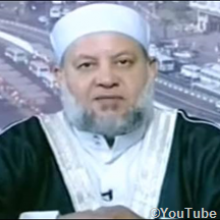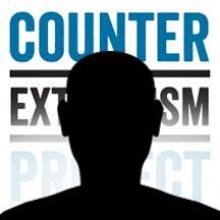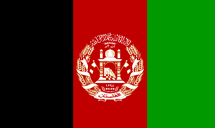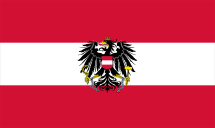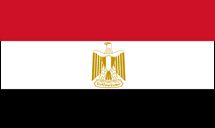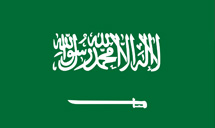Executive Summary:
Hizb ut-Tahrir (HT), meaning “Party of Liberation,” is an international Islamist movement seeking to unite Muslims under one Islamic caliphate.
Founded by Palestinian Taqiuddin al-Nabhani al-Filastyni in 1953, HT considers itself a non-violent political party. HT states that its goal is to peacefully convert Muslim nations to Islamist political systems. HT praises the concept of jihad but insists that it does not use “material power to defend itself or as a weapon….” The group publicly disavows efforts to achieve its goals of a caliphate through violent means.
HT has been banned in at least 13 countries worldwide.
However, individuals affililated with the group have been linked to violent acts in multiple countries. Some have been involved in coup attempts in the Middle East, the murder of a pro-secularist blogger in Bangladesh, and spreading anti-Western and Muslim-separatist propaganda in the West. HT maintains that its members are political dissidents.
HT has been called a “conveyor belt” for terrorists by Zeyno Baran of the Hudson Institute. Baran notes that HT members, once radicalized by the group’s ideology, are vulnerable to more explicit messages of militancy. One example is British citizen Omar Sharif, who attempted to blow up a Tel Aviv bar in 2003. British intelligence officers found HT literature in Sharif’s U.K. home. Another example is ISIS fighter “Jihadi John” (now deceased), who reportedly attended events with HT speakers while in university in Great Britain.
HT chapters operate in more than 40 countries, but the group is banned in many Muslim-majority countries, including Egypt, Jordan, Saudi Arabia, Turkey, and Uzbekistan. The group is also banned in China and Russia.
While HT promotes the concept of a caliphate, it does not recognize the so-called caliphate created by ISIS. On July 2, 2015, HT Britain published a statement denouncing ISIS’s June 2014 declaration of an Islamic state because ISIS lacked the authority to create or secure a caliphate in Syria. Nevertheless, British HT members have reportedly joined ISIS and other militant Islamist groups in the Middle East. Former Australian Prime Minister Tony Abbott accused HT of nurturing “extremism in our suburbs,” claiming that the group justifies terrorism and inspires young men to join jihadist activities in Syria and Iraq.
British prime ministers Tony Blair and David Cameron called for banning HT in 2009 and 2011, respectively. However, David Anderson, then the U.K. government’s cindependent reviewer of terrorism legislation, submitted a report to Parliament in 2011 recommending against banning HT as it had not advocated violence. The British Home Office has also ruled that HT does not advocate violence and that Britain cannot ban the group for having unpopular ideas. The Home Office did concede, however, that HT is antisemitic, homophobic, and anti-Western. Citing HT’s history of antisemitism and support for terrorism, the United Kingdom banned HT Britian in January 2024 under the United Kingdom’s terrorism laws.
Former Australian Prime Minister Tony Abbott’s failure to ban HT in that country prompted his government to propose a law prohibiting speech deemed “advocacy to genocide.” Attorney General George Brandis said the proposed law was aimed at groups like HT. In September 2015, Brandis and the Abbott government announced the “advocacy to genocide” legislation as part of a package to be introduced in parliament later that year. However, later that month, Malcolm Turnbull defeated Abbott for the leadership of Australia’s Liberal party and consequently, for the office of prime minister. Australia’s Daily Telegraph reported in October 2015 that the Turnbull government would abandon its predecessor’s attempts to ban HT and to advance the “advocacy to genocide” bill.
Doctrine:
HT seeks to establish a global caliphate and presents its Islamist ideology (based on the writings of the organization’s founder, Taqiuddin Nahbani) as an alternative to both capitalism and secular democracy. HT proposes the restoration of a caliphate as a solution to the problems in the Middle East, with all Muslims living according to sharia (Islamic law) under the rule of an Islamic caliphate. HT insists that it seeks to reestablish the caliphate only in the Muslim world, not “in any of the western countries including the US.” However, HT uses anti-Western propaganda to advance its Islamist objectives. For example, HT blames purported anti-Muslim discrimination in the West and violence against Muslims in Muslim-majority countries on Western domestic and foreign policies.
HT seeks to erect a global caliphate.
The group’s strategy to create a global caliphate is divided into three phases. The first phase is to create a core Muslim leadership to guide HT. In the second phase, this core leadership reaches out to the broader Muslim community and convinces them to follow HT’s model of Islam. HT’s extensive outreach activities around the world indicate that the group is currently focusing on this second phase of its strategy.
The third and final stage of HT’s mission is regime change. Once HT has obtained sufficient public support for its vision of a caliphate, HT expects that support to facilitate a peaceful transition to Islamist rule. HT doctrine officially eschews violence and believes “Islamic law forbids violence or armed struggle against the regime as a method to reestablish the Islamic State.” Only the caliph of the Islamic state—a position that does not yet exist—can declare jihad under HT doctrine. Further, HT believes “military struggle is not the method of reestablishing the Caliphate.”
However, HT does not foreclose the possibility that a transition to Islamist rule could also transpire through a military coup if, for example, enough soldiers were converted to HT’s worldview. Despite hoping for military support to overthrow current regimes, HT still positions itself as a non-violent movement, HT’s doctrine considers military intervention to be outside help (nusrah) since the military is not a direct arm of HT. Analysts studying the HT movement have implicated HT members in failed military coups in Jordan (1968 and 1969) and Egypt (1974). However, HT members did not provide any military support for these coups. In the case of Jordan, HT members allegedly encouraged members of the military to overthrow the government.
Since HT presents Islam as an exclusive socio-political system superior to secularism and democracy, the group urges Muslims to detach themselves from any secular or nationalist loyalties. To that end, HT spreads an Islamist narrative of Muslim grievance and victimhood, oversimplifying the complex global socio-political environment into a single, simple narrative: the West opposes Islam. This narrative can result in an identity crisis for some Muslims, which opens the door for their radicalization, according to a 2007 radicalization study from Denmark’s justice ministry. One possible example of HT-inspired radicalization is the case of 15-year-old Farhad Jabbar in Parramatta, Australia. Jabbar shot and killed a police accountant in October 2015 and reportedly attended an HT event the morning of the shooting. HT Australia denied that Jabbar is a member and condemned the shooting, but it also called “western foreign and domestic policy” the “real cause of violence.”
HT promotional materials have called for violence against Jews.
Despite its official non-violent stance, HT has called for violence against Jews. In 2002, HT leaflets found in Denmark urged Muslims to kill Jews “wherever you find them, and turn them out from where they have been [sic] turned you out.” A BBC report quoted the HT leaflet further: “The Jews are a people of slander...a treacherous people... they fabricate lies and twist words from their right context.” In 2003, similar antisemitic rhetoric resulted in the group being banned from many university campuses in Britain and a complete ban of the group in Germany.
HT supports not only violence against Jews in general but offensive jihad against Israel in particular. HT believes Israel has “occupied Islamic lands”—lands once ruled by Islamic law. Accordingly, HT believes those lands should return to governance by Islamic law and supports jihad as a means to that end.
Accordingly, HT views violent acts against Israel as legitimate political protest against Israel’s existence as a state. The organization’s literature has supported Islamist suicide bombings in Israel, the Gaza Strip, and the West Bank. In 1994, HT’s global leader, Ata Abu Rashta, reiterated this point when he declared that Jews who came to Palestine after the collapse of the Ottoman Empire have no right to live there. He called for all Jews of fighting age in Israel to be “killed until none survive.”
At least one HT-related person is believed to have attempted a suicide bombing in Israel. British citizen Omar Khan Sharif was reportedly affiliated with an HT splinter group. He began attending HT meetings while at King’s College in London. Sharif reportedly followed former HT leader Omar Bakri Mohammed to his new group, al-Muhajiroun. On April 30, 2003, Sharif and fellow British citizen Asif Muhammad Hanif attempted a suicide bombing at a Tel Aviv bar. Sharif’s explosives failed, but Hanif killed three and wounded 50. HT denied responsibility for radicalizing Sharif.
On social issues, HT’s ideology is reactionary. HT dictates subservient roles for women, who are required to obtain their husbands’ permission to leave the house and cannot go outside wearing perfume. HT’s doctrine also forbids homosexual acts and prohibits participation in other faiths’ celebrations, such as Christmas.
Organizational Structure:
HT is a hierarchical organization with as many as 1 million members throughout the world. HT boasts of a presence in at least 33 countries and maintains a central media office in Beirut, Lebanon. Each country has a local chapter led by an emir, who answers to HT’s overall emir, Ata Abu Rashta. While Abu Rashta’s exact location is unknown, he continues to lecture at Islamist conferences worldwide and new rhetoric from him regularly appears on HT websites.
In each of these chapters, men and women are encouraged to be active members of the movement but work separately in order to keep the genders apart. HT’s vision of a future Islamic state reserves the highest positions—including caliph, provincial governors, and defense minister—for men alone. Once an Islamic state is established, the caliph would select a defense minister, who would then enforce conscription to the caliphate’s army of all Muslim men over the age of 15. While women are encouraged to join and participate in HT, they are forbidden from filling leadership roles like defense minister.
Some of the most active HT chapters are listed and described below:
United Kingdom:
HT Britain is the nerve center of the organization.
HT’s British chapter (HT Britain) is considered the nerve center of the global movement. HT’s operations in the United Kingdom are led by HT Britain’s chief executive, Dr. Abdul Wahid. HT’s spokesperson, Taji Mustafa, engages the media on behalf of the movement, and has spoken at HT conferences in other countries like Australia. Because HT is allowed to operate freely in Britain, HT Britain recruits members by hosting public conferences and panels, and by engaging with the British media on a regular basis. HT Britain also maintains a website, where its positions on foreign and domestic policy are made available through articles and video.
On both Twitter and Facebook, HT Britain has amassed over 11,000 followers. Local HT Britain chapters organize their own fundraising to support outreach efforts, such as printing and handing out leaflets in public spaces. HT Britain has also benefited from government funding, including grants to run early education programs. The British government ended this funding program after media reports confirmed that HT members were using the funding to indoctrinate students with controversial HT ideology, including the belief that tolerance and integration are un-Islamic.
Individuals known to have been in contact with HT Britain have gone on to join more violent Islamist groups. For example, notorious ISIS executioner Mohammed Emwazi (a.k.a. Jihadi John) was in contact with the group while studying at British universities before he joined ISIS.
Although the United Kingdom was previously reluctant to ban HT, on January 15, 2024, U.K. Home Secretary James Cleverly announced that his government would ban the group under the country’s terrorism laws. The decision came after HT members chanted for jihad at a pro-Gaza rally in October 2023. Cleverly accused HT of being an “antisemitic” organization “that actively promotes and encourages terrorism, including praising and celebrating the appalling 7 October attacks” by Hamas on Israel. The ban went into effect on January 19, 2024.
United States:
HT operates freely in the United States, although the group keeps its leadership and membership numbers private. HT America recruits members by hosting periodic conferences and panels, as well as maintaining a website and social media accounts. The HT America website includes articles advocating its policy positions and information on upcoming events around the country.
HT America has more than 28,000 followers on Facebook.
HT America has amassed more than 1,000 followers on Twitter, up from more than 300 followers in 2016. Meanwhile, the group’s Facebook page has more than 28,000 followers as of May 2017, up from more than 20,000 in early 2016. HT America has held multiple conferences across the United States over the years at such prominent venues as the Hilton hotel in Oak Lawn, Illinois. Other venues in Illinois, like the Chicago Marriott Oak Brook and the Meadows Club in Rolling Meadows, have canceled HT America events after receiving concerned calls from the public.
Australia:
HT Australia is led by Islamist cleric Ismail al-Wahwah. Since HT is free to operate in Australia, HT has recruited members by hosting public conferences and panels, and by engaging regularly with Australian media. HT Australia also maintains a website, where the group posts content highlighting the movement’s philosophy, positions on political issues, and planned events in the country.
The group also maintains a strong public profile on social media. Al-Wahwah has more than 4,000 followers on Facebook, and the group’s Facebook page has more than 26,000 likes as of May 2017, up from 9,000 likes in January 2016. HT Australia’s media spokesperson, Uthman Badar, tweets regularly to more than 7,000 people.
In October 2015, a 15-year-old who shot and killed a police accountant in Parramatta, Australia, had reportedly attended an HT discussion at his local mosque on the morning of the incident. In December 2014, Iranian-born Man Haron Monis took more than a dozen people hostage at Sydney’s Lindt Chocolat Café. Monis and two hostages were killed after a 16-hour standoff with police. Monis had attended a June 2014 HT lecture on the failings of the West.
In March 2017, international media circulated video footage of Badar stating that apostates—those who leave Islam—should be put to death. In response, anti-HT activists in Australia launched an online petition to have the group banned.
Denmark:
HT Denmark was founded in 2000 by former HT member Maajid Nawaz, and others. Today, the group is popularized by its spokesperson Junes Kock.
The Copenhagen-based branch of HT considers itself a regional office as indicated by its name HT Scandinavia. Outside of Denmark, HT Scandinavia has hosted events and distributed leaflets in Stockholm, Sweden. HT Scandinavia has a website that highlights the group’s work, policy positions, and planned events in the region. On Facebook, the group has amassed more than 6,000 likes as of May 2017, up from 4,000 in February 2016.
Since its founding, HT’s operations in Denmark have been steeped in controversy. In 2003, former HT spokesperson in Denmark Fadi Abdelatif served a 60-day suspended sentence for distributing antisemitic propaganda. Moreover, while HT Scandinavia is not proscribed in Denmark, Danish MPs have discussed banning HT in Denmark in 2008 and 2015 because of the group’s inflammatory speeches.
HT’s Danish leadership frequently focuses its attention on the Palestinian-Israeli conflict. On February 14, 2015, Imam Hajj Saeed spoke at an HT Scandinavia event, wherein he denounced interfaith dialogue. He also implied that since Islam’s prophet Muhammad waged war with the Jews in Medina, it was permissible to do the same today. Saeed’s sermon was delivered the day before a terrorist attack in Copenhagen, wherein 22-year-old gunman Omar El-Hussein killed two and injured five while attempting to enter a cultural center that was hosting a free-speech event.
Netherlands:
Not much is publicly known about HT leadership in the Netherlands, though it is known to include media representative Okay Pala. On Twitter, Pala has accrued more than 3,000 followers. The HT Netherlands Facebook page has more than 13,000 likes, as of May 2017, representing a growth of almost 200 percent since February 2016, when the page had little more than 5,000 likes. HT Netherlands also maintains a website highlighting its policy positions, activities, and planned events in the country.
While the organization is allowed to operate in the Netherlands, some private venues in the country have been unwilling to host HT events, including the Rotterdam-Zuid community center De Put, which rejected hosting an HT panel in September 2015. HT has persisted in its recruitment and publicity strategy by handing out HT literature in Dutch in Rotterdam.
Australia, the U.K., and Netherlands have each sought to ban HT.
Consequently, Netherlands has unsuccessfully attempted to ban HT.
Pakistan:
HT is not allowed to operate in Pakistan. Nevertheless, the organization remains active on social media and through outreach efforts that primarily target members of the military and educated classes. HT Pakistan engages the public regularly through its website and social media activity. HT Pakistan’s Twitter account has more than 6,000 followers, and its Facebook page has more than 19,000 likes as of May 2017, up from more than 5,500 in March 2016. The group’s illegal status in Pakistan notwithstanding, the number of HT Pakistan’s Facebook followers increased more than 300 percent over the previous year.
Pakistani authorities periodically arrest HT members despite the group’s ban in 2003. For example, the group maintains that the Pakistani government abducted its leader, Naveed Butt, in 2012, and has since been advocating for his release. In November 2015, Pakistani authorities arrested HT Pakistan leader Siham Qamar and seven others during a series of raids.
The New York Times noted in 2012 that “special concern arose in Pakistan” after an army brigadier named Ali Khan was charged in 2011 with “having ties to HT, and of conspiring to overthrow the [Pakistani] government.” Khan and four others were convicted in 2012. The incident highlights HT’s efforts to recruit Pakistan’s military leadership in hopes of replacing the government with a caliphate.
Bangladesh:
HT was banned in Bangladesh in 2009. Since then, HT has continued its activities in the country, despite sporadic arrests of alleged members. HT Bangladesh recruits members by hosting conferences and passing out HT literature in public. HT Bangladesh also maintains a website. The group’s Facebook account has more than 1,300 likes.
In March 2015, Bangladeshi authorities arrested HT member Farabi Shafiur Rahman in connection with the murder of secular blogger Avijit Roy. Rahman joined HT in approximately 2010. He had previously been arrested in 2010 and again in 2013 for threatening a cleric performing funeral rites for another atheist blogger who had been murdered.
Bangladeshi authorities have arrested more than 600 HT supporters since the group was banned. In June 2016, HT Bangladesh was reportedly distributing leaflets calling for rebellion against the “tyrannical rule” of Bangladeshi Prime Minister Sheikh Hasina Wazed.
Malaysia:
HT Malaysia’s leadership includes spokesman Abdul Hakim Othman and vice president Sopian Jahir. HT operates freely in Malaysia, except in the province of Selangor, where HT was proscribed in September 2015. Outside of Selangor, HT recruits members by hosting periodic conferences and seminars.
HT Malaysia also maintains a website and official Twitter and Facebook accounts. The group’s Twitter account had more than 2,000 followers as of January 2016, but has since been discontinued. Its Facebook page has more than 26,000 followers as of May 2017, up from 13,000 followers in March 2016.
In November 2015, Malaysian authorities briefly arrested HT Malaysia’s former spokesperson, Abdul Hakim Othman, in connection to anti-American protests during President Obama’s visit to Malaysia that month. On September 17, 2015, the Islamic Religious Department of the Malaysian state of Selangor issued a fatwa outlawing HT Malaysia within its jurisdiction. Othman attempted to respond to the edict banning the group by holding a press conference in Selangor on December 4, 2015, but was arrested during the event. Othman was released later the same day.
Indonesia:
HT Indonesia’s spokesperson, Muhammad Ismail Yusanto had more than 31,000 followers on Twitter as of May 2017, representing an increase of 7,000 followers since January 2016, when he had more than 24,000 followers. Yusanto regularly engages Indonesian media to advocate HT positions in the country. While membership numbers are unknown, HT events have included more than 100,000 attendees at some conferences. HT Indonesia’s website is regularly updated with articles and videos addressing domestic and foreign politics and social issues from an HT perspective.
In 2011, HT Indonesia’s chairman, Rochmat Labib, told the Associated Press that HT’s 10-year plan in Indonesia is to “reinforce the people’s lack of trust and hope in the regime.” Further, he said, HT is “converting people from democracy, secularism and capitalism to Islamic ideology.” In 2016, HT organized protests accusing Jakarta’s Christian governor, Basuki “Ahok” Tjahaja Purnama, of blasphemy. In May 2017, Purnama was found guilty of blasphemy and sentenced to two years in prison.
On May 8, 2017, Indonesian President Joko “Jokowi” Widodo ordered a ban of HT activities. Security Minister Wiranto told media that HT has “clearly caused conflict in society” and worked against Indonesia’s pluralistic society.
Central Asia:
In Central Asia—including Uzbekistan, Kazakhstan, and Kyrgyzstan—HT membership is estimated at between 20,000 and 100,000, with members typically including college students, teachers, the unemployed, and factory workers. New members are also drawn through prison recruitment in Central Asia. Uzbekistan is believed to have as many as 8,000 HT members. In the late 1970s, HT outreach spread from Uzbekistan to neighboring Kyrgyzstan and Kazakhstan. There, HT’s membership has expanded to include non-ethnic Uzbeks, ethnic Russians, and Koreans.
HT financing in Central Asia is believed to come from private donations and dues paid by members, with dues estimated at anywhere from 5 percent to 20 percent of a member’s monthly income.
India:
In May 2023, a joint operation carried out by the Intelligence Bureau, the Anti-Terror Squad of Madya Pradesh, and the Counterintelligence Wing of Telangana exposed covert networks and individuals linked to or belonging to HT. The cells were active throughout Madhya Pradesh and Telangana, often infiltrating educational and other vocational institutions. Reportedly the networks attempted to forcibly convert Hindus. The HT cells throughout southern India also reportedly engaged in combat and shooting training and communicated through encrypted web apps such as Rocket Chat and Threema. Ziyavudeen Baqavi and Bava Bahrudeen have been described as notable figures in HT India, with Baqavi having served as the leader and chief recruiter for Tamil Nadu and Puducherry. By August, the operation led to the arrest of at least 17 HT members.
Financing:
HT appears to be funded through several means, including private donations and government subsidies, but few details about the group’s finances are public. Local chapters organize their own fundraising to support outreach efforts, such as printing and handing out leaflets in public spaces. Operational costs appear low because many members do volunteer work. Donations are primarily raised in Europe, the Middle East, and Pakistan. Pakistan recalled diplomatic envoy Mohammad Mazhar Khan from Bangladesh in March 2015 after receiving allegations that he had laundered money to HT and other Islamist militant groups in Bangladesh.
HT has also benefited from government funding. For example, a British foundation run by HT members received government grants to run early education programs. The British government ended the funding after media reports confirmed that HT members were teaching students HT ideology, including the belief that tolerance and integration are un-Islamic.
Recruitment:
Recruitment is crucial to HT’s overarching strategy. As a self-purported peaceful movement for regime change, HT must gain sufficient public support to realize that change. In countries where the group is not banned, HT’s outreach efforts include passing out literature in public spaces, organizing seminars, and releasing pro-Islamist publications, such as The Institutions of State in the Khilafah [caliphate], online. HT also operates websites in multiple languages that provide access to HT literature, such as political commentary and religious justifications for the movement’s worldview.
Conferences are another critical method for HT to spread its message. HT has held multiple conferences in the United States, including at least three “Khilafa [caliphate] conferences” in 2015. The conferences focused on answering questions surrounding a future Islamic caliphate. These questions include, “What is Khilafah,” “Why Khilafah,” “Who is Hizb ut-Tahrir,” and “How we work for Khilafah.” HT America held multiple rallies and conferences through 2016 as well, including its annual Khilafa Conference at the Ramada Inn in Glendale, Illinois, that May. HT returned to the hotel in April 2017 for its annual conference, which the group dubbed as “a global call to Muslims worldwide to stand up and fulfill the obligation to resume the Islamic way of life, as decreed by Allah (SWT), by reestablishing the Khilafah on the path of our Prophet (SAW).” In 2012, then-presidential candidate Michelle Bachmann questioned whether an HT event in Rolling Meadows, Illinois, was “subversive speech.” In 2009, protests were held in front of an HT event in Oak Lawn, Illinois.
In the United Kingdom, HT operates freely and publicly, holding conferences and conducting outreach programs at numerous U.K. universities. In 2003, the British Home Office concluded that it could not ban an HT conference in Birmingham that year since HT professed to be non-violent. Approximately 10,000 people attended.
HT outreach to students relies on access to campus events at universities. In the United Kingdom, HT recruits and maintains an active presence on university campuses. British media have reported that HT radicalized future ISIS fighter Mohammed Emwazi, a.k.a. “Jihadi John” (now deceased), and other future prominent jihadists before they traveled to fight in the Middle East. Emwazi attended Britain’s University of Westminster, where he was exposed to HT ideology through the university’s Islamic Society. During Emwazi’s years as a student at the University of Westminster, the Islamic Society organized on-campus panels that included HT members as speakers. The university has been the subject of several accusations that HT has infiltrated its campus.
British counter-extremism activist Maajid Nawaz is a former HT member who was drawn to the group as a teenager. As a student at London’s Newham College, Nawaz continued to spread HT’s message until he was expelled when his self-appointed bodyguard stabbed and killed a non-Muslim student. According to Nawaz, HT seeks to recruit members of student groups, such as the University of Westminster’s Islamic Society, and exploits freedom of speech to showcase speakers who “peddle a highly politicized, often violent strain” of Islam.
Nawaz warns it “is easier than one might think for bright, capable people like Mr. Emwazi to fall for the myopic worldview of the preachers of hate. Young people from relatively prosperous, educated backgrounds have long been overrepresented in jihadist causes.” In April 2011, for example, Westminster students elected Tarik Mahri and Jamal Achchi, both tied to HT, as president and vice president, respectively, of the student union. As president of Westminster’s Global Ideas Society, Mahri had been instrumental in bringing HT speaker Jamal Harwood to campus.
Dr. Alexandra Stein is a social psychologist specializing in extremist groups. While teaching at Westminster between 2007 and 2012, Stein noticed a “tremendous amount of recruiting” at the school. Stein recalled female Muslim students telling her they had been pressured to wear veils and sit in the back of classrooms at university-sanctioned HT lectures. Because of the university’s tolerance of HT campus activities, “students were being led like lambs to the slaughter,” according to Stein.
HT also enjoys a strong presence in the Middle East and Asia. In Central Asia, the group operates through underground channels, where 2003 membership ranged from 20,000 to 100,000. Recruits include college students and teachers, the unemployed, and factory workers. Central Asian authorities believe HT also recruits heavily in prisons.
HT is particularly active in Indonesia and Malaysia. On August 12, 2007, HT hosted a Khilafa (caliphate) conference in Indonesia to discuss the need for a global Islamic state. Although several speakers canceled due to travel restrictions by Indonesia and other countries, the conference attracted approximately 100,000 participants. Organizers called it the largest gathering of Muslim activists in the world.
Since the beginning of the Arab Spring, HT has intensified its recruitment efforts in the Middle East, seemingly to take advantage of political voids left by toppled dictatorships and ongoing civil wars. HT outreach includes efforts to highlight the humanitarian crisis created by the current conflicts. In March 2012, for example, HT hosted a women-only conference in Tunisia. The group organized a protest in Aleppo, Syria, on November 9, 2012, and a press conference in Amman, Jordan, in April 2013 to highlight the Syrian civil war’s impact on women and children.
Also Known As:
- Hezb ut-Tahrir
- Hizb ut Tahrir
- Hizbut Tahrir
